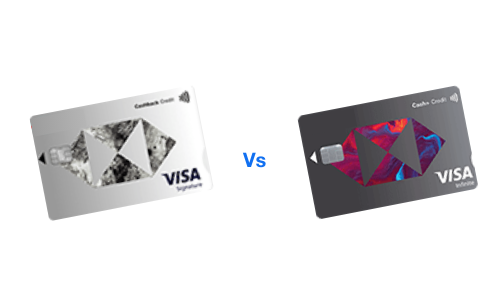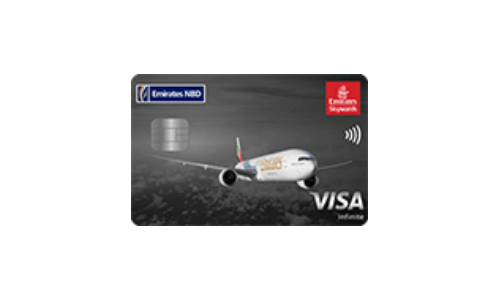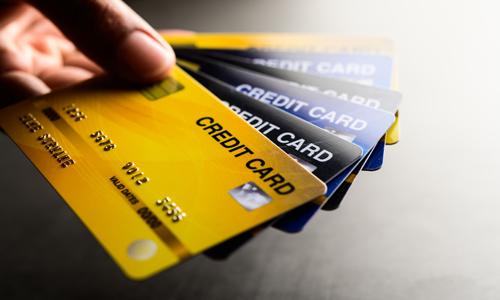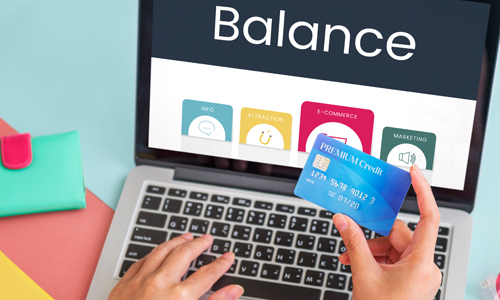Credit Card Terminologies You Must Know Before Applying for One

Getting your first credit card can be an exciting experience if you know how to maximise your benefits by using one. However, for some it can be a confusing start because there are a lot of complex term to be understood before you can start milking the benefits. If you’ve been finding it difficult to understand credit card related terms, then read on. Here, we have a list of some of the most frequently used terms that’ll help you in understanding your card better. Here is a list of some of the important terms and an explanation to tell you exactly what they mean.
15 Important Credit Card Terms to Read and Understand:
- Credit Limit
- Annual Fee
- Annual Percentage Rate - APR
- Cash Advance
- Pre-Approved
- Grace Period
- Interest Charges
- Credit History
- Credit Score
- Balance Transfer
- Due Date
- Introductory Rate
- Minimum Payment
- Transaction Fee
- Utilisation Ratio
Now let’s dive into the details and find out what these terms actually mean and what impact can they have.
- Credit Limit - Credit limit is the maximum expenditure that can be made through a particular credit card. A credit limit is usually set based on the income of the cardholder at the time of application. However, the limit can be increased on the basis of card usage and timely payment of dues.
- Annual Fee - An annual fee is a charge levied on the credit card once a year to keep the card active and to avail the benefits on that specific card. It can be charged at the beginning of the calendar year or the account opening anniversary, depending on the card. Premium credit cards have a higher annual fee than basic ones.
- Annual Percentage Rate (APR) - The interest rate that is charged on an annual basis on the credit card is referred to as APR or Annual Percentage Rate. APR is the percentage of the cost of funds charged during the total term of a loan. It may include an additional fee on any transaction but is not compounded over the duration of the loan.
- Cash Advance - A credit card can be used to withdraw cash from the bank or ATM. The cash withdrawn using a credit card is referred to as cash advances. However, withdrawal of cash via a credit card includes additional charges depending upon the norms of financial institutions. Moreover, each credit card has a cash limit beyond which no cash advance can be made.
- Pre-Approved Credit Cards - Financial institutions keep track of potential customers with a good credit score and offer them a pre-approved credit card. This simply means that they are eligible to acquire a credit card post a secondary verification. However, pre-approval doesn’t guarantee that the customer will get a credit card.
- Grace Period - A grace period is a time during which no charges are applied if the payment is being made in full. The grace period starts from the transaction date to the next billing date. For most of the cards, it usually falls between 30 to 45 days. Any unpaid balance will attract a penalty on the credit card and degrade the credit score; hence, the grace period must be kept in mind while applying for your credit card.
- Interest Charges - The credit card issuer applies certain interest charges if the payment is not made in full during the grace period. If an unpaid balance is carried to the next billing date, then an annual percentage rate is applied. These charges are different for different credit cards and issuers and usually lie between 30 - 40%.
- Balance Transfer - The transfer of loan amount from one credit card to the other one is termed as balance transfer. Many financial institutions offer a lower rate of interest and better rewards for every transaction on credit card balance transfer. It helps the issuers to retain and acquire customers.
- Due Date - A credit card usually has a monthly billing cycle and all the transactions done in that particular cycle are reflected on the last date of the cycle. Subsequently, the issuer provides a final date for clearing out all the transactions in that billing cycle. This final date is called the due date within which all the outstanding payments are to be made. In case a user misses the due date, the issuer will charge a penalty for non-payment of due.
- Credit History - The card issuing company maintains a record and reports it on a monthly basis to the credit bureau or similar agencies. These agencies maintain a credit history and any fault in the payment cycle can bring down your credit score, making it difficult to acquire further loans in the future.
- Credit Score - A credit score is simply the rating of a credit card user. It ranges between 300 and 850. The larger the score, the better is the loan acquiring tendency of the cardholder. The credit score of a card user is based on credit history, total credit accounts, timely payment of dues, the level of debt, etc.
- Introductory Rate - Introductory rate is a limited period offer to a new credit card user where a low-interest rate (sometimes 0%) is applied for purchases. Introductory rates are available only for customers with good creditworthiness and credit score. In certain cases, these rates are also available for the balance transfer on credit cards.
- Minimum Payment - It is the minimum amount that a card user can pay before the due date to maintain the credit account and avoid any additional interest and penalties. The minimum payment amount is only a small portion of the total outstanding amount. It is advisable to pay the total outstanding amount rather than the minimum payment for a healthy credit score.
- Transaction Fee - The fee paid against each electronic transaction by a business is called a transaction fee. A credit card user is charged a nominal amount as a transaction fee for every purchase that he makes. The transaction fee varies depending on the type of credit card.
- Utilisation Ratio - A Credit Utilisation Ratio is the percentage consumption of your total credit limit. A higher utilization ratio is considered risky and negatively impacts the credit score despite the timely payments. Therefore, it is advisable to spend less than 50% of your total credit limit in a single go.
Additional Things to Remember before Applying for a Credit Card
Apart from the above-mentioned terms, there are certain things to keep in mind before applying for a credit card as mentioned below:
- Types of Credit Card - Although there are a lot of credit cards available in the market promising numerous benefits, it must be kept in mind that the best rewarding cards are not for beginners, so they must be cautious while choosing a credit card keeping in mind their income. A card with a low credit limit can be the best option for beginners since it has fewer annual fees and charges.
- Charges Levied on Credit Card - The credit card comes with various charges like joining fee, renewal fee, annual charges, cash advance charges, etc. So, before applying for your first credit card, make sure to check all the charges that can be incurred on the card.
- Penalties on Late Payment - A beginner must be aware that anything not followed by rules in credit card transactions incurs a penalty, whether it's missing on a due date or making a late payment. Therefore, the cardholder should make sure he is not missing out on any payment date. Penalties also depend on the issuers and vary for different cards. It's necessary to verify beforehand while applying for a credit card.
- Perks - At present, almost every issuer comes up with attractive deals and rewards points on the credit card, whether it's a shopping coupon or rewards on fuel. Make sure to go through these perks and benefits before applying for a credit card.
How Can You Maximise Credit Card Benefits?
Here are some tips to help you maximize your benefits while using a credit card:
- Make sure you maintain a timely payment cycle well within the due dates to avoid any extra charges.
- Pay all your dues within the grace period and you can save all your extra interests.
- Large amounts that cannot be paid within a month or grace period can be put to the flex-pay scheme, where you have to pay a monthly EMI with nominal charges.
- List down all the rewards and shopping points and utilize them wherever you can.
- Timely payments will also help you build a better credit score, increasing your credit limit and loan acquiring chances.
Conclusion:
A credit card is a great financial tool. When you apply for one, all you have to do is go through the terms and conditions and develop a good understanding of what’s in store for you when you settle for a card of your choice. You can compare different credit card providers, compare the cards offered by them and get one that best fits your requirements.
Read More About Salary Based Credit Cards
More From Credit Cards
- Recent Articles
- Popular Articles


















